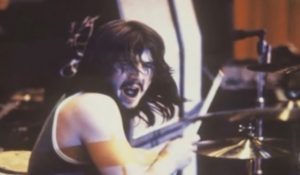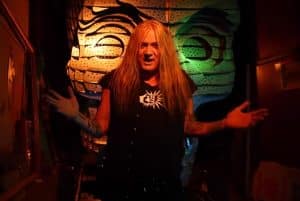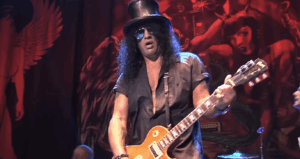Forget the Hits: 3 Black Sabbath Songs With Ozzy That Deserve More Love

via Ozzy's Official X
Not every classic track earns its spotlight. Some get overshadowed by radio mainstays and compilation regulars, no matter how groundbreaking or emotionally powerful they are. For a band like Black Sabbath—with a catalog bursting with heavy riffs and unforgettable performances—it’s easy for a few gems to slip through the cracks.
Ozzy Osbourne’s voice has shaped the sound of heavy metal more than most. While fans worldwide know him for anthems like “Paranoid” and “Iron Man,” there’s a different kind of magic found in the lesser-known tracks—songs that reveal more nuance, more grit, and sometimes even more soul than the hits. These tracks often offer a rawer, more intimate glimpse into the band’s creative force.
This list isn’t about ranking or reclaiming forgotten B-sides just for the sake of it. It’s about celebrating songs that showcase Sabbath’s depth, and Ozzy’s unmistakable voice, in a way casual listeners might’ve missed. Here are three underappreciated tracks from the Ozzy era that deserve more attention.
“Planet Caravan”, Paranoid (1970)
“Planet Caravan” might not be buried at the bottom of Black Sabbath’s discography, but it still doesn’t get the love it truly deserves. Tucked between thunderous tracks like “War Pigs” and “Iron Man,” this slow-burning, spacey song often gets dismissed as an outlier. But that’s exactly what makes it worth revisiting—it’s a bold departure from the heavy metal sound people expect from Sabbath.
Instead of distortion and doom, the band explores a dreamy, psychedelic groove. Ozzy Osbourne’s vocals drift through a Leslie speaker, giving them a ghostly, otherworldly quality that adds to the song’s weightless feel. And while Tony Iommi lays low with subtle guitar work, Bill Ward brings out the bongos—an unusual but inspired touch that completes the track’s vibe.
“Planet Caravan” reveals a side of Black Sabbath that was unafraid to experiment, even early in their career. It’s not loud or aggressive, but it’s deeply atmospheric and hypnotic. Listening closely, it’s clear this wasn’t just filler—it was a moment of sonic exploration that deserves a lot more recognition than it typically gets.
“Megalomania”, Sabotage (1975)
Clocking in at nearly ten minutes, “Megalomania” is an epic in every sense of the word. Yet despite its scale and complexity, it rarely gets brought up in conversations about Sabbath’s best songs. Found on Sabotage, the track opens with a brooding, slow-burning intro that immediately sets a darker tone than most of their more popular fare.
The lyrics take a surreal, existential dive—lines like “My body echoed to the dreams of my soul” give it a nearly cosmic horror edge. The slow pacing at the start makes every second feel intentional, with Ozzy’s voice full of dread and vulnerability. And just when you think the track will stay in that somber space, it shifts into a groovier, almost manic section without losing its emotional intensity.
Ward’s drumming is relentless throughout, and Iommi unleashes some truly searing riffs once the tempo picks up. It’s a song that takes its time to evolve, showing how dynamic Sabbath could be when they stepped outside the three-to-five-minute mold. “Megalomania” isn’t just underrated—it’s a full-blown journey that more fans should experience from start to finish.
“Air Dance”, Never Say Die! (1978)
By the time Never Say Die! came out, Black Sabbath was in a strange place. Ozzy Osbourne would soon leave the band, and critics were quick to dismiss the album as a misfire. But buried within the chaos is “Air Dance,” a track that sounds like nothing else the band ever recorded—and that’s exactly why it stands out.
The song blends soft piano, ethereal synths, jazzy drumming, and melodic guitar lines in a way that feels almost cinematic. Ozzy’s vocals float above the instrumentation with a softness that contrasts beautifully with his usual raw power. It’s a ballad of sorts, but it’s still unmistakably Sabbath, with a melancholy undertone that runs deep.
“Air Dance” is a reminder that even near the end of a tumultuous era, Sabbath was still pushing their sound in new directions. It may not be heavy in the traditional sense, but its emotional depth and artistic risk-taking make it one of the band’s most fascinating—and tragically overlooked—songs.














